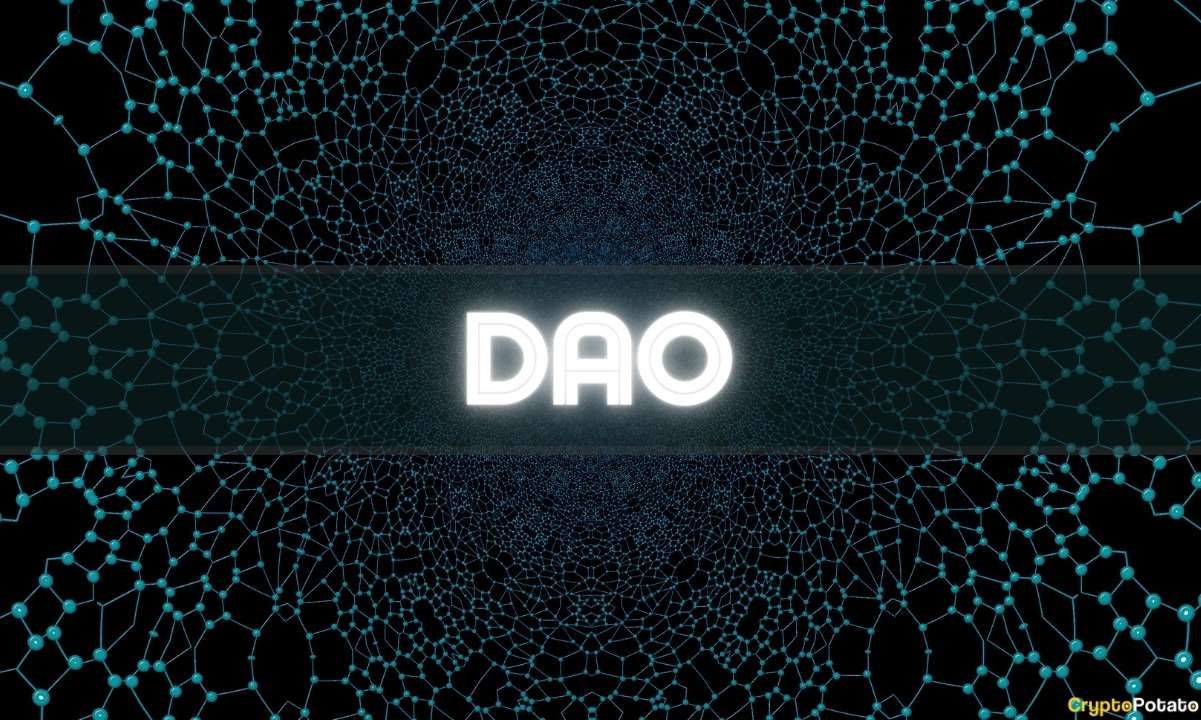

DAO Governance Token
In case you don’t know what a DAO is, they stand for Decentralised Autonomous Organisations. Basically, it translates to an internet community with a bank account running on an open blockchain.
A DAO runs on its own and rewards its members with tokens which can be used to cast a vote for the running of new tasks, change in the running ones, additional improvements etc.
To know more about DAOs in detail, check out our previous blog titled “DAOs Explained” by clicking here.
While it is known that DAOs exist and work independently, a question that arises is how exactly do they govern the matters and come to a conclusion about an issue or a future strategy? Read on to know how the DAO governance takes place in detail.

Ever since blockchain technology has led to the origin of DeFi (Decentralised Finance), it has only opened more doors for newer concepts and protocols to flow in.
DAO is one such example which is in use while also simultaneously developing. A DAO functions as an organisation except there is no CEO, every member who is a part of the DAO is a partial CEO and only after a true consensus can something new be taken up.
Consequently, something new being taken up also affects the entire DAO community. Being on a blockchain (mostly open), it is only fair for a DAO to govern using this evergreen technology but how? The answer lies in tokenisation through “Governance Tokens.”
The Governance Tokens in a DAO represent ownership in a decentralised protocol hence maintaining their role as the partial CEO. The tokens are responsible for providing the members with certain rights that when exercised can influence the entire decentralised protocol.
Much like the DAO these tokens too are blockchain-based and depending on the DAO they may or may not hold a fiat (real-world currency) value.
With these tokens in their hands (wallets rather) the members of the DAO can propose changes by following the process of submitting a formal proposal.
If the set criteria are met then the proposal goes to vote and then with these very tokens the holders can vote on the changes proposed. The set criteria, token mechanism and voting process differ across various DAOs.
How Does Governance Take Place Through These Tokens?
In order to understand the roadmap of taking decisions (or votes) in a DAO it is important to understand how matters are governed in a real-world organisation. In a traditional organisation, there is a CEO, board of directors and shareholders.
All that is supposed to happen in the future lies in their hands. These people are the ones having sole discretion for the strategic direction. In short, the power to make decisions is centralised. This is not the case in a DAO.
Unlike traditional organisations, a DAO does not have a centralised group of people making the decisions. Here everyone is a decision maker pertaining to the organisation’s future.
These decisions are made via a pre-set “Governance Process.”

The governance process involves the submission of proposals and voting by the community, as mentioned earlier. Now to make the voting process fair is where blockchain technology kicks in.
Since the DAO and Governance Tokens are blockchain-based, the tokens too account for some characteristics of their own such as “immutable ownership” and “transparent distribution” which makes them even more suitable for voting and decision making in a distributed manner.
Whenever the proposal in a DAO goes to vote, the holders have the option to vote on-chain. Ideally, the voting power is in proportion to the number of Governance Tokens a holder has.
For example, if A has 100 Governance Tokens and B has 50, then A has twice the amount of voting power as B.
Although based on simple numerical logic, some DAOs are trying to counter this process by “quadratic voting” in order to provide all the holders with the same voting power, thereby giving more weight to equality.
Whether this strategy is good or not depends solely on the kind of work a DAO is doing.
What are the Advantages of Governance Tokens?

In addition to providing the DAO members with the ability to vote, these tokens also provide utility in making the process decentralised.
The Governance Tokens are a major step towards mass decentralisation and also a live example of power being brought to an entire community.
These tokens also provide the following advantages:
Growth:
Since the tokens bring in power to vote, they loop in more members to become part of the DAO thereby leading to a growing community.
Incentives:
The Governance Tokens also act as incentives between users and protocol as a way of rewarding the holders for being a part of the DAO.
Protection:
The Governance Tokens protect the protocol through network effects which in turn makes them even more valuable.
Use cases of Governance Tokens
In addition to the ability to vote, the Governance Tokens can also provide other interesting utilities depending on the DAO.
The following is a list of projects that make use of the Governance Tokens:
Maker DAO:
With MKR as their governance token, it is one of the first Governance Tokens in the DeFi space. The holders of MKR vote on collateral types, DAO governance etc.
Terra:
Before crashing catastrophically, this protocol run on the Terra blockchain has LUNA as its governance token. It held the options of getting staked, validating transactions and acting as an anchor to maintain UST’s peg with the US dollar.
Uniswap:
The governance token UNI boasts the largest market cap for any token in the DeFi space. Uniswap also functions as a decentralised exchange with only the UNI holders reserving the right to vote.
Curve DAO:
Curve is an exchange liquidity pool with CRV as its governance token designed for extremely efficient stablecoin trading. It even incentivises its holders for using the exchange protocol.
While it is true that Governance Tokens add value to the mechanism, it may not be true for each and every protocol. Much like the Web 3 space, the future of these Governance Tokens looks bright with a lot left to be figured out.
Only time will tell how mainstream these tokens become. This new concept is also a reminder that the crypto space is highly volatile and one must always do their own research to reduce the risks.
